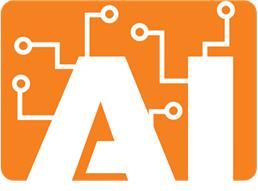The world’s total population of African Elephants decreases by one every 15 minutes. Africa’s illicit poaching trade has made the future of elephants unclear.
From a massive population of more than 2 million, the last 100,000 African elephants alive today are on track to be killed by poaching for ivory and bushmeat over the next decade. Staff constraints at African national parks make it harder to catch poachers.
Thanks to the advancement of technology and the rise of artificial intelligence (AI) with machine learning (ML) avenues, we may have the opportunity to save wildlife and bend the curve of species decline.
According to TechCrunch, in response to Africa’s dwindling elephant population, two technology leaders came together with leading technology and conservation partners to create the most advanced and innovative trackers to protect elephants in their natural habitats. Six months ago, amidst a full-blown pandemic, Hackster.io, a massive open-source community, and Smart Parks, a wildlife conservation organization reached out to industry leaders in the tech community to fund the R&D and manufacturing of 10 of the most advanced elephant tracking collars.
These new tracking collars are designed to deploy advanced machine-learning (ML) algorithms with the longest battery life and a comprehensive networking range that has never been seen before. With eight years of battery life and hundreds of miles of LoRaWAN networking repeaters, the latest ElephantEdge tracker is considered the most advanced of its kind, running TinyML models that will provide park rangers with a deeper understanding of elephant acoustics, motion, location, environmental anomalies, and more. The tracker is powered by advanced telemetry dashboards and machine learning models.
Project ElephantEdge is the perfect example of open-source, community-powered, conservation AI at work. When business and public interest converge in the field of sustainability, it can lead to a joint initiative to support wildlife conservation activities.
The new collar can generate vital data about ‘human presence detection’ and ‘elephant activity monitoring’ and better equip park rangers to make urgent life-saving decisions. By the end of 2021, in cooperation with the World Wildlife Fund and Vulcan’s EarthRanger, at least ten elephants will sport the latest collars in selected parks across Africa, unleashing a new era of conservation, awareness, and protection.
Petcare and AI is a thriving global market, by 2025 it is expected to grow to US$280 billion. In recent years, big data-based smart vet projects and groundbreaking pet care products such as smart collars, smart feeding and watering systems powered by AI and IoT have been on the rise. These innovative products can be customized using machine learning algorithms, thereby helping owners provide their pets healthier lives.
Pet longevity is another topic that is gaining more and more attention, and rightly so. Established in 2018, PetSensus has developed a platform for biomedical data using big data techniques. To create a customized pet care guide, the platform gathers data from pet owners and uses a homegrown machine learning model. Petsensus recently entered into a collaboration with Insilico Medicine to find ways to extend pet lifespan. By leveraging PetSensus’s biomedical data platform, the companies plan to speed up research on drug development for aging pets and service animals.
AIsmartz- Your Data Enrichment & Labeling Partner
Our team at AIsmartz recently got a chance to work in this domain. We assisted a European government client with data preparation, cleansing, and transformation (national pet data) for a pilot project development to establish a robust reporting solution to gain insights on real time national and regional pet statistics.
Our Client is the central authority for maintaining information of all pets in their country. Their Pet Management System stores information for each pet in the database including the history of the pet, current owner details, pet details, and the pet’s diagnoses history. While they have a functional public website used by clinics, veterinarians, breeders, and the general public (where a pet can be searched by using the microchip (CHIP) number of the RFID tag); they found that the data was not structured enough to be implemented as a countrywide portal.
We successfully extracted data from the primary database and generated a new flat reporting database with some precalculated datasets.
Once that was established, a high-performance API suite was developed to extract the data for the new reporting database.
- You can go through our website to learn more about our services.
- To learn more about our data enrichment and labeling services, Contact Us today.
We’re here to make AI work for you.
Talk to our team today and start your AI journey. Whether you have questions about our services, need support, or want to discuss a potential project, our team is ready to help.





